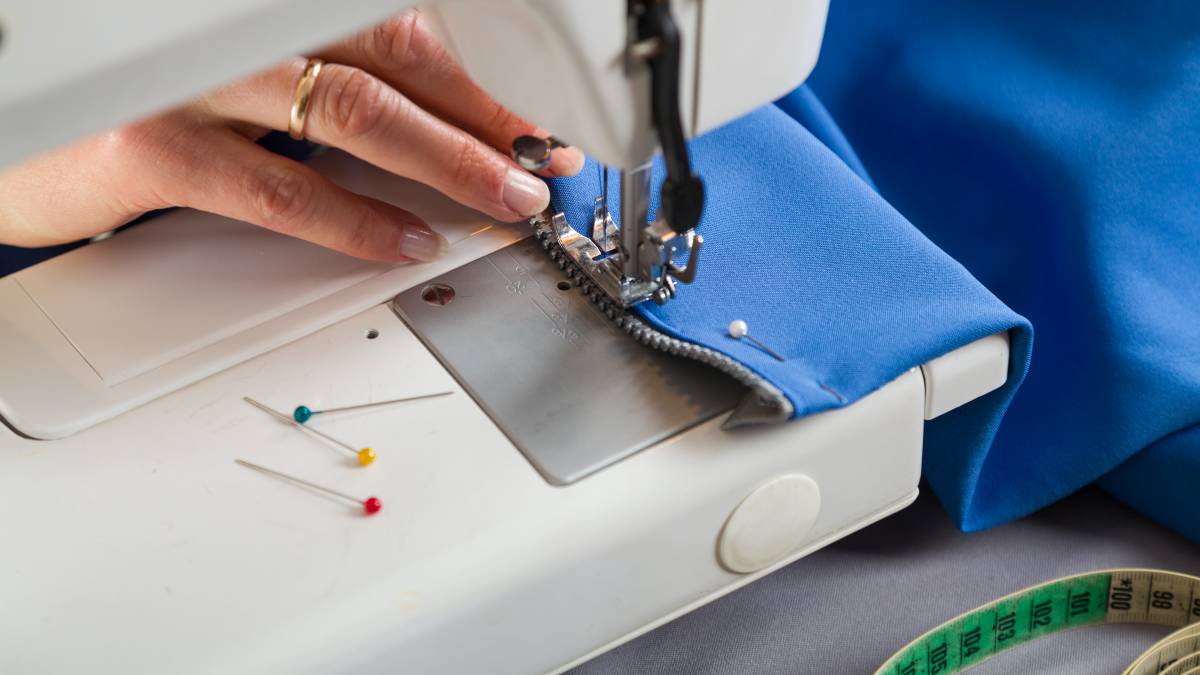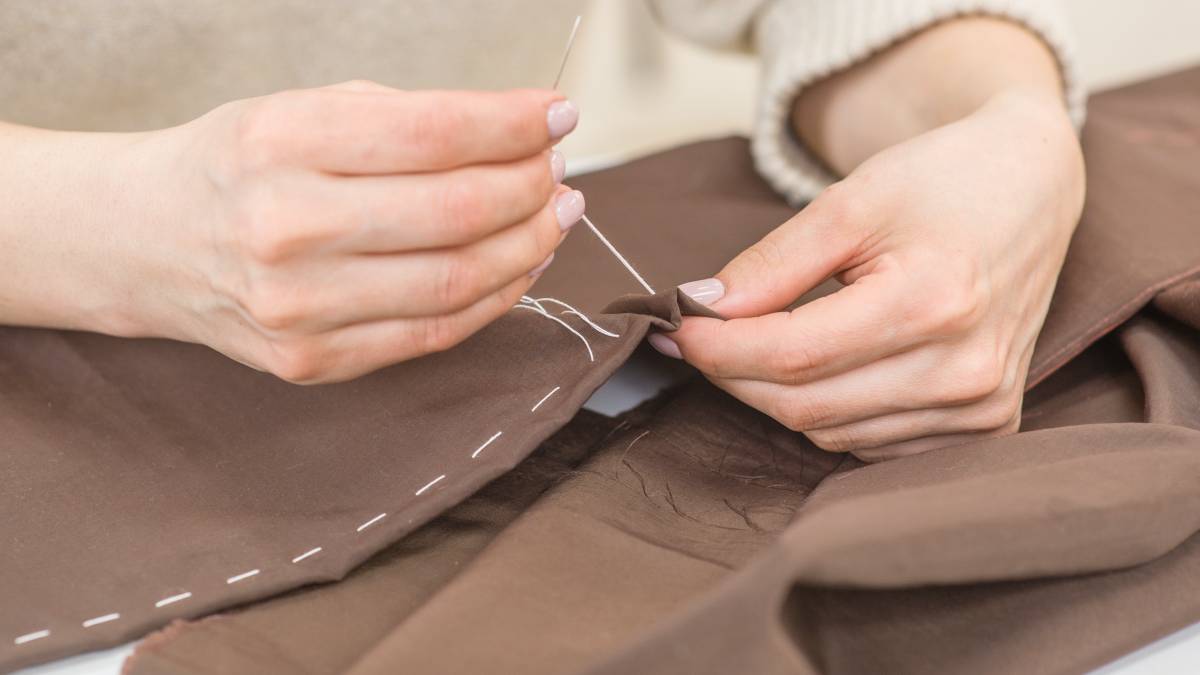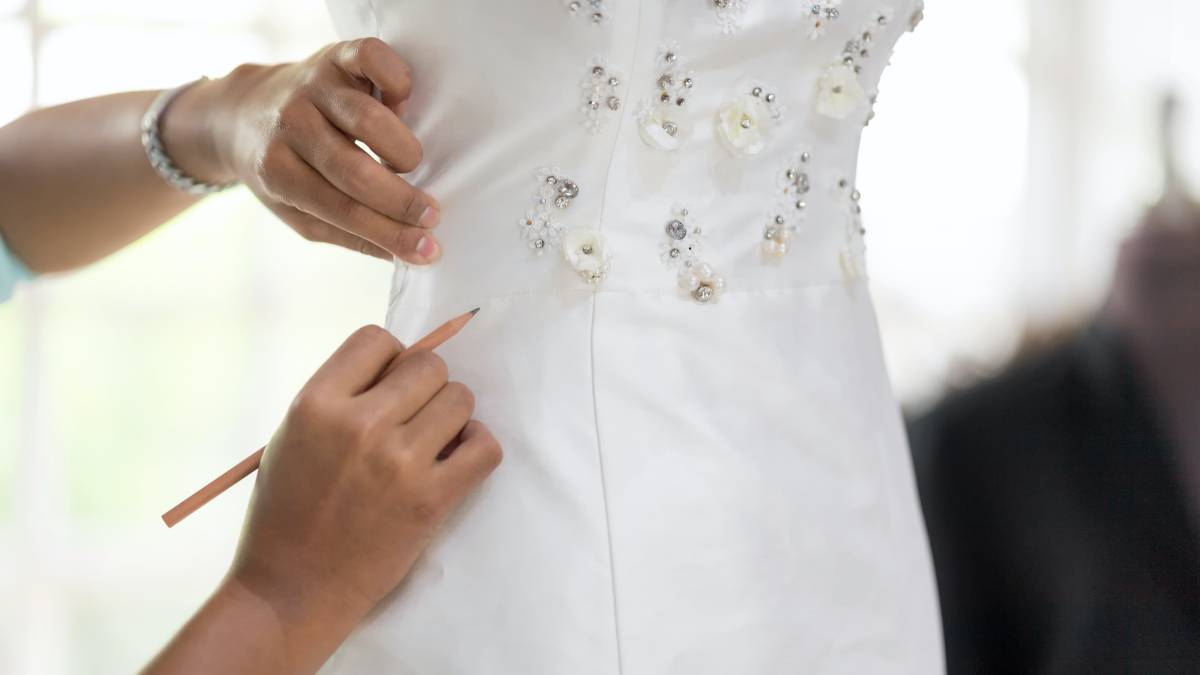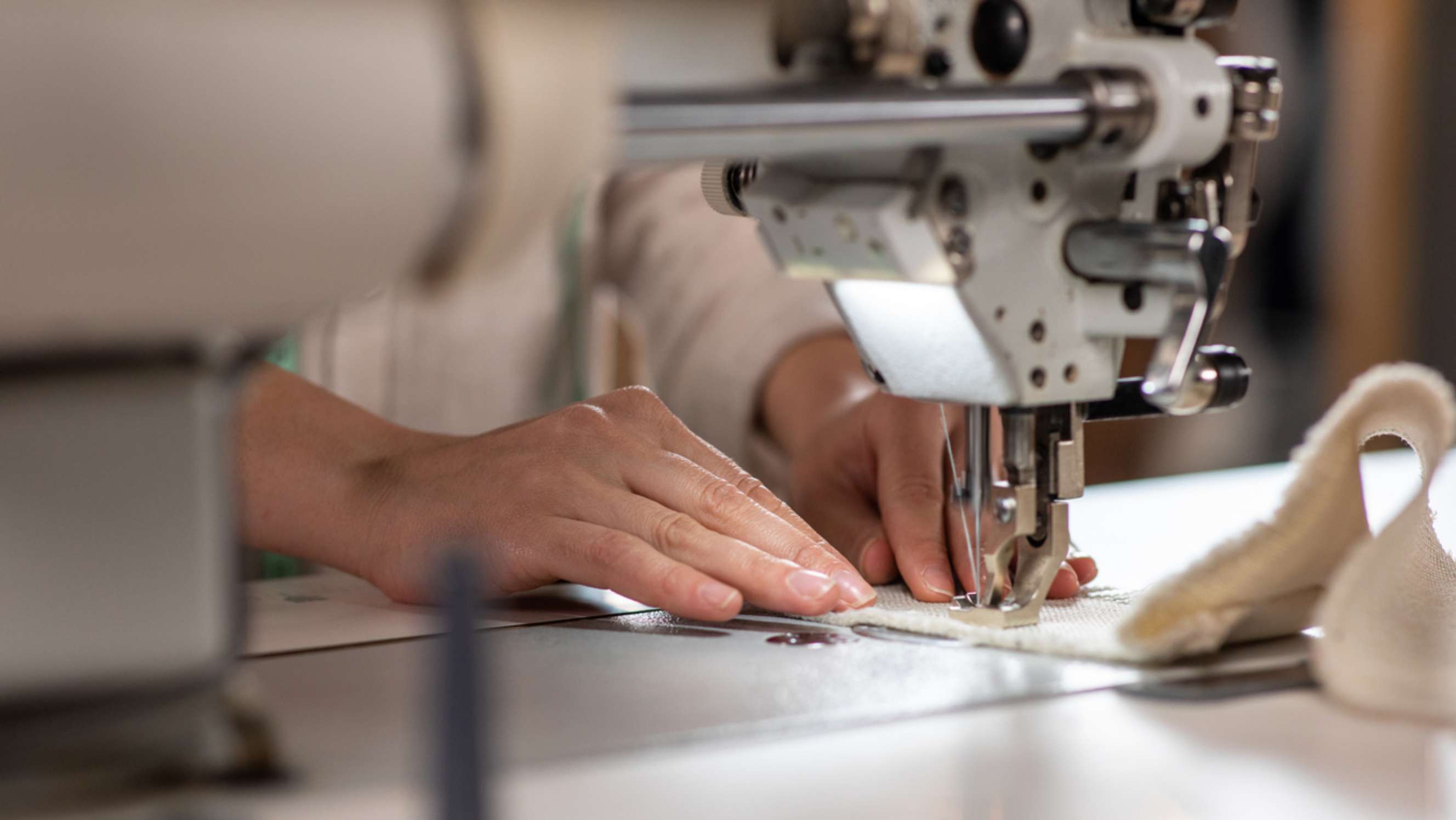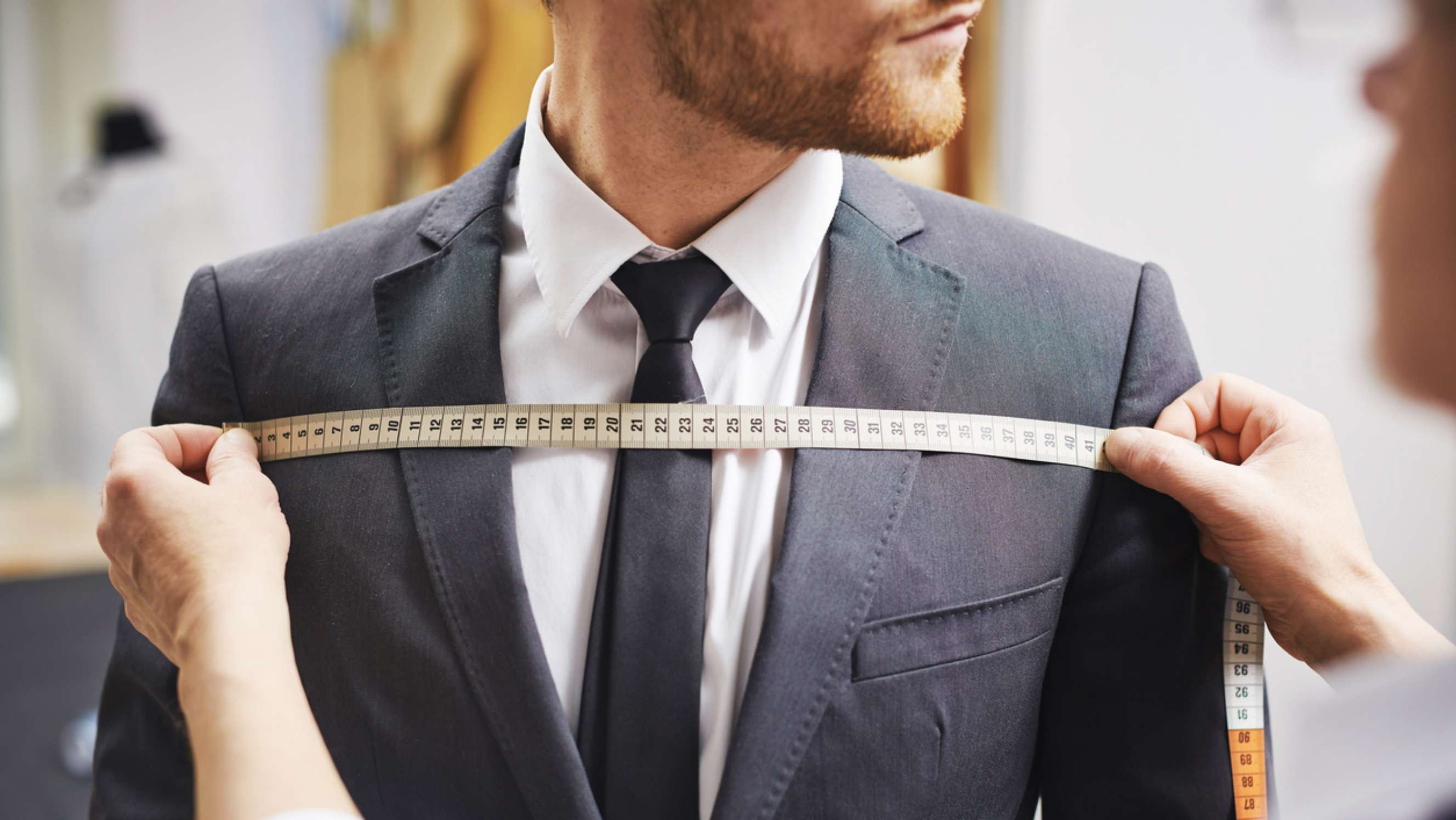- Home/
- Costs/
- Dress Alterations/
- Dress Alterations Cost Guide
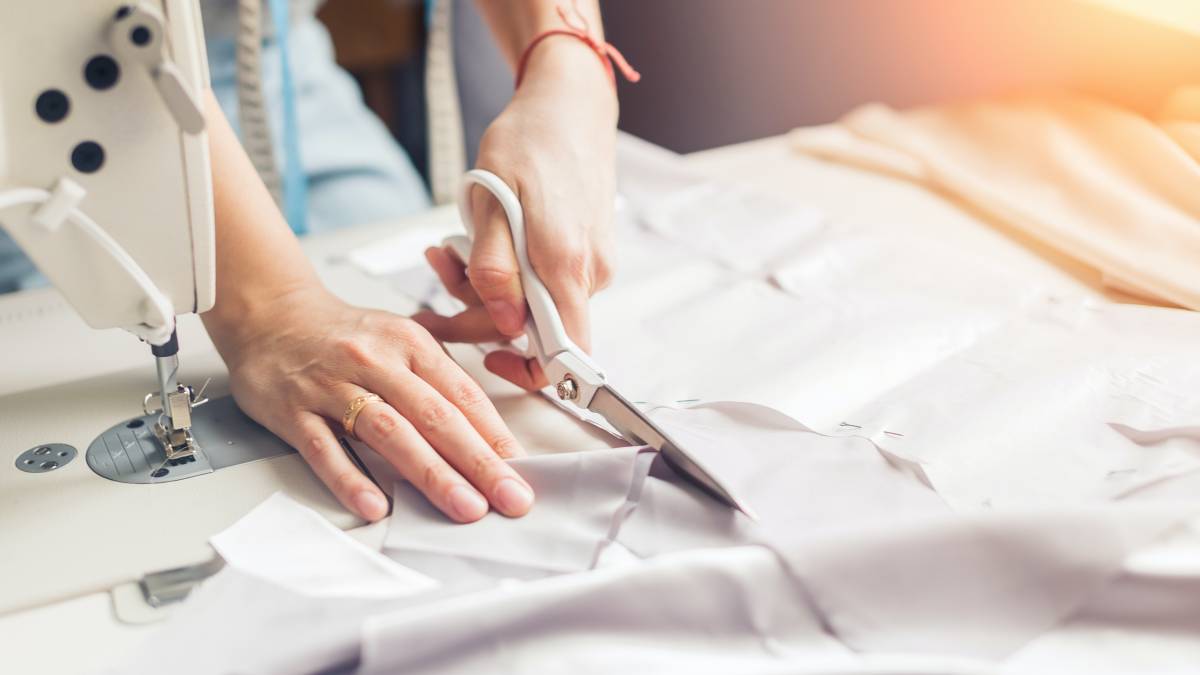
Dress alterations cost: How much do tailors charge in the UK?
Get a free quote nowPost to find a price. It's free and only takes a minute.
Price guide
£7 - £90
low
£7
median
£25
high
£90
Last Updated on
Key Facts
- Hand-sewing costs more than machine work, especially with delicate materials or embellishments. Specialty fabrics like leather can increase costs by 50%.
- Taking in fabric is simpler than adding it. Very oversized dresses might need complete restructuring from shoulders to hem.
- Basic changes like shortening hems start at £7, while more technical work like adding material to “let out” a dress requires advanced techniques and costs more.
Want to give your clothes a longer life while supporting the environment? Studies show keeping garments nine months longer cuts carbon, waste, and water usage by 20-30%. When dresses don't fit quite right but remain perfectly wearable, turning to alteration services makes practical sense for your wallet and the planet.
So how much does it cost to alter a dress? You can expect to pay between £2 and £90 based on what changes you need. For instance, simple hem adjustments cost less, while major changes to a bridal gown sit at the higher end of the price range. To help you out, this guide outlines all cost factors to help you budget correctly and find excellent value when updating your favourite dresses rather than replacing them.
Price list for common dress alterations
This section lists current dress alteration prices for common dress alterations. From basic fixes to complete redesigns, the tables below are organized by garment type to simplify your budgeting.
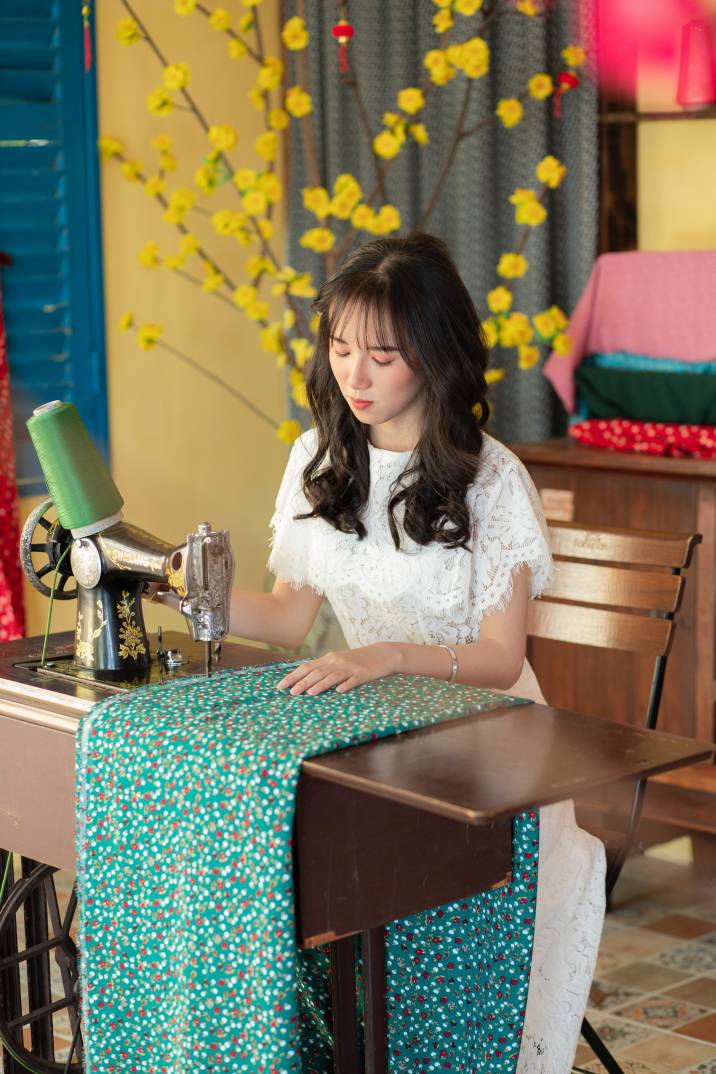 A woman using a sewing machine to resize a dress. (Source: iStock)
A woman using a sewing machine to resize a dress. (Source: iStock)
Skirts and dresses
| Alteration |
Price |
|---|---|
Shorten plain |
£15.00 |
Shorten with lining |
£20.00 |
Take in waist and hips |
£25.00 |
Lengthen |
£15.00 |
Lengthen with tape |
£20.00 |
Let out sides |
£24.00 |
Let out waist |
£20.00 |
Re-hem |
£10.00 |
New zipper |
£18.00 |
Shorten straps |
£15.00 |
Shorten lined straps |
£18.00 |
Shorten cord straps |
£12.00 |
Shorten additional layer |
£7.00 |
Hook and eye |
£4.00 |
Snaps (small) |
£2.00 |
Snaps (medium) |
£2.00 |
Alter neckline |
£16.50 |
Remove layer or frill |
£10.00 |
Bridal gowns
| Alteration |
Price |
|---|---|
Shorten |
Starts at £90.00 |
Take in |
Starts at £90.00 |
Bridesmaid dresses
| Alteration |
Price |
|---|---|
Shorten |
Starts at £30 |
Take in |
Starts at £35 |
| You might also like: Bridesmaid Dress Alterations Cost Guide |
Factors affecting dress alteration costs
1. Job complexity
The price of different alterations, like zipper repair and letting out, mainly depends on job complexity. Suppose you want to give an heirloom dress a little makeover or turn your daughter’s gown into something she can wear more often. Alteration intricacy usually determines how much it costs to alter a prom dress or formal gown.
Shortening or tightening garments is the easiest, most common, and probably most inexpensive type of alteration, costing around £7 to £25. Sometimes, clients require a dress to be enlarged (or the process of “letting out”) to fit bigger frames. For this kind of alteration, the seamstress might apply various tricks to add more material to the garment.
2. Dress type
The more elaborate the dress, the more expensive it is. Altering a wedding dress can be a little more tricky. It is helpful to note that wedding boutiques often keep only one to two sizes of a specific design in stock for wedding gowns. Dresses like these are usually smaller, so probably need to alter the dress you purchased. It's common for wedding dresses to be designed as more alteration-friendly than standard, ready-to-wear gowns.
It will be easier and cheaper to take in a dress than to let it out. However, too large sizes probably require remaking because the cuts must be remade, from the neckline and shoulders to the bodice and skirt side seams. But everything will be worth it because, without proper alterations, you might have to deal with a wardrobe malfunction.
3. Stitch type
There are different types of stitches depending on the style of the dress. A blind-stitched (or invisible) dress hem alteration costs less than a top-stitched hem. Alterations requiring more hand sewing take longer and thus cost more. Most formal attire and bridal gowns with delicate fabric, intricate lace designs, or elaborate beadings require hand sewing to ensure that the embellishments are placed accurately.
 A woman using a sewing machine to alter a dress. (Source: iStock)
A woman using a sewing machine to alter a dress. (Source: iStock)
4. Fabric type
The thickness and machine requirements of the fabric also contribute to the cost of the dress alteration service. For instance, shortening and hemming a dress made of denim will require a seamstress to use a sewing machine with heavier-gauge needles and threads. Leather is a rare material used in dresses, so altering a leather dress will usually cost 50% more than a fabric dress.
5. Your location
Like in any other project, your location can affect dress alteration prices. A professional seamstress in a big city or state might have higher fees due to business costs such as storefront rental and taxes. Conversely, dress alteration costs are lower in rural areas.
6. Tasker experience
The skill level of the alteration or tailoring expert you choose also affects the cost of dress alterations. More often than not, professional seamstresses with decades of experience charge more than newer ones.
Post a task for dress alteration
After checking prices for dress alterations, it’s time to find someone who can do the job properly. Instead of searching for hours, post a task and get quotes from tailors offering dress alteration services near you. With all offers in one place, you'll quickly spot the best deal.
Start with these steps:
- Note down what alterations you need. Mention the type of dress, specific changes required, and when you need it completed.
- Click 'Post a Task' and complete the form with your requirements. Look beyond just the lowest price - check what's included in each quote.
- Review ratings and feedback from previous customers to make sure you're choosing a seamstress with proven skills.
- Select your preferred offer when ready. Payment happens only once your dress alterations are finished.
Remember, the cost of altering a dress is minimal compared to buying a new one. Plus, you're keeping perfectly good clothes in your wardrobe instead of contributing to textile waste. Post your task today and breathe new life into your wardrobe!
FAQs
Improperly fitted dresses don't look flattering on any figure. Most importantly, they're not comfortable to wear. Fashion nightmares such as unflattering photos and wardrobe malfunctions are some of the issues you can prevent by having your dress altered.
The process of making a beautiful dress requires training and skill. Unless you have training or experience altering dresses, doing it yourself might cause more harm than good.
A well-fitted dress must support and shape the bust. It should also accentuate your body shape. For most women, casual dresses should be comfortable to wear. For brides, a gown should be long enough to cover their shoes (if applicable) but not too long that it causes them to trip.
If you're looking for a professional seamstress in London or Hertfordshire, Airtasker makes it easy to find skilled experts for alterations, dressmaking, and custom tailoring. Whether you need a quick hem adjustment, bridal gown alterations, or a bespoke outfit, you can compare local seamstresses, read reviews, and get competitive quotes. For services in the capital, visit Seamstress Services in London, or if you're based in Hertfordshire, check out Seamstress Services in Hertfordshire.
Find dress alterations, fast
Post a task
Related price guides
Related articles
